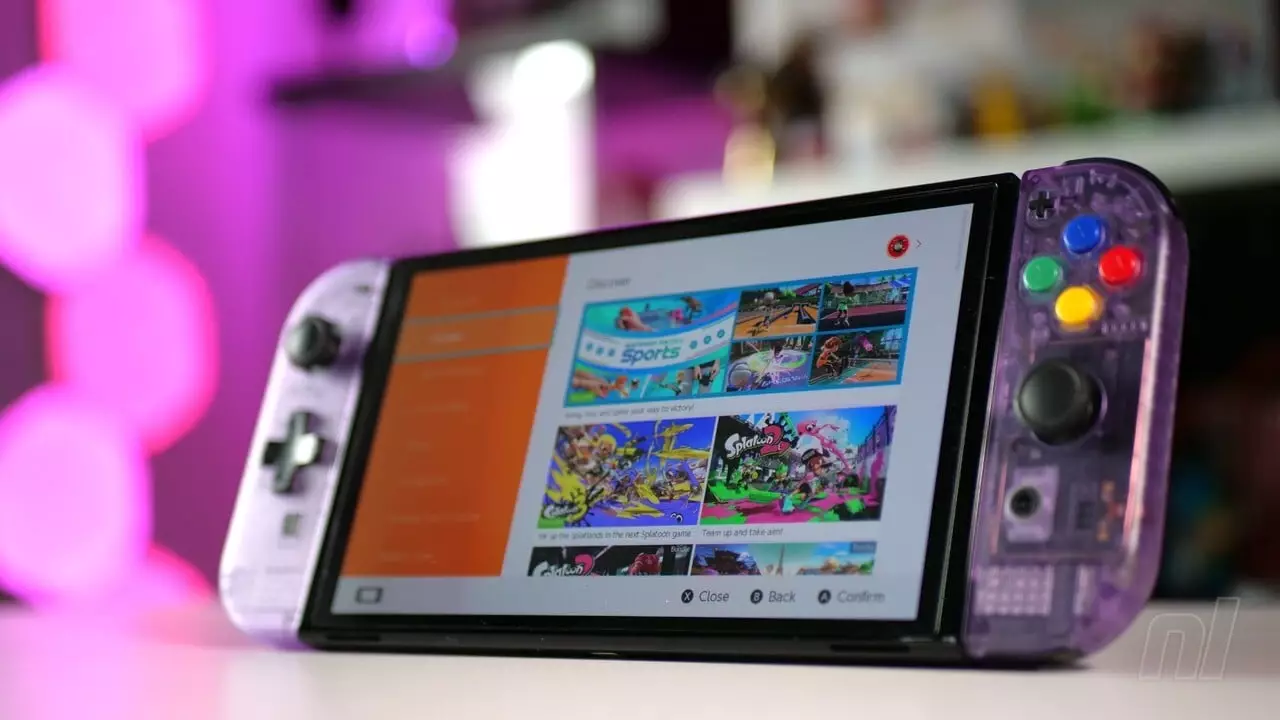The Nintendo Switch eShop, once touted as a revolutionary platform for indie games and small developers, has now become a focal point of frustration both for players and developers alike. As we move into 2025, the digital storefront is beleaguered with slow performance, clunky navigation, and a myriad of titles that clutter the experience rather than enhance it. But how does the struggle manifest when viewed through the lens of those attempting to sell their creations on this tumultuous platform?
Recently, gaming news outlet IGN delved into the challenges faced by developers within the Nintendo eShop ecosystem. The field of inquiry revealed a sentiment of disillusionment that echoes throughout the indie community. Developers are confronting an eShop littered with scam titles and poorly structured games, often feeling overwhelmed by the sheer volume of subpar content. An anonymous developer’s comment sharply encapsulated the prevailing sentiment: “Nintendo is probably the easiest to scam.” This assertion underscores a critical flaw in the approval process; once a developer gains entry with one legitimate game, the door swings wide open for opportunistic exploitation.
This notion leads to a disturbing trend where developers can create games that misrepresent their content and get them listed without substantial vetting. The environment creates a paradox in which the developers who do adhere to ethical standards feel punished for their compliance. Many emphasize a system that allows for “forgiveness over permission,” whereby misleading representations are often met with minimal consequences—a mere “tap on the wrist,” as one developer phrased it. Unfortunately, the lack of robust scrutiny creates an uneven playing field, where disingenuous titles can thrive.
In the same breath, developers express frustration at Nintendo’s simultaneous approach to rejecting games with little explanation. Several have shared experiences of submitting games, only to face harsh rejections devoid of transparent communication. Such inconsistencies leave developers wondering what criteria govern acceptance and dismissal. This duality—where it is relatively easy to list dubious titles while getting legitimate projects blocked—adds another layer of complexity to the developer relationship with Nintendo’s storefront.
The sentiment of futility felt by these creators reflects on the overall state of the eShop. Even as it houses a wealth of innovative ideas and vibrant creativity from indie teams, a large part of its catalog is muddied by misleading titles and low-quality offerings. Developers voiced concerns about how this could bode for the future, pointing out that Nintendo’s historical struggles with its digital marketplaces raise doubts about genuine improvement moving forward. The outlook is bleak, but the community holds on to a sliver of hope that the situation might improve slightly with future iterations of the platform.
Amidst the discouragement lies an emerging trend driven by developers seeking solutions to these issues. One such initiative is the ‘Better eShop’ initiative aimed at enhancing the user experience. This alternative platform seeks to address shortcomings by evolving filters to categorize and prioritize quality titles, helping players discover games without sifting through a mire of poorly made content. As developers rally behind ideas that prioritize quality and user experience, there is a palpable yearning for a reassessment of current practices.
The current state of the Nintendo Switch eShop serves as a reflection of the broader challenges within digital marketplaces—a microcosm where creativity struggles against a backdrop of exploitative practices and systemic flaws. Ongoing dialogue between developers and platforms is crucial for cultivating a healthier environment, one where commitment to ethical standards is rewarded, and transparency fosters stronger relationships. For players, the hope remains that they will soon navigate an optimized eShop that showcases the rich tapestry of gaming experiences without the burden of sifting through unnecessary clutter.
As we anticipate possible enhancements to the Switch’s digital storefront, the industry watches keenly—ready to support the evolution of a platform that celebrates creativity while simultaneously tackling the persistent woes faced by those who bring their dreams to life.


Leave a Reply